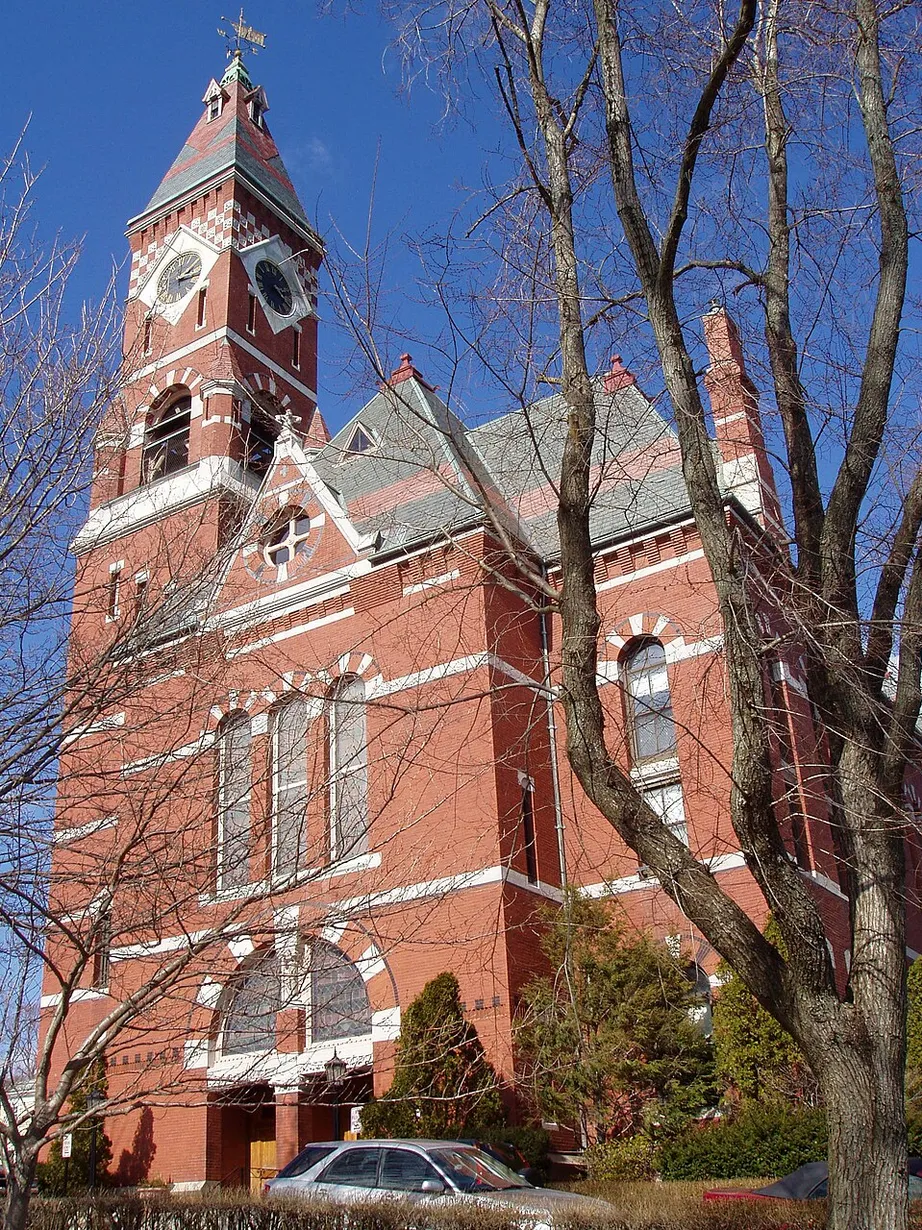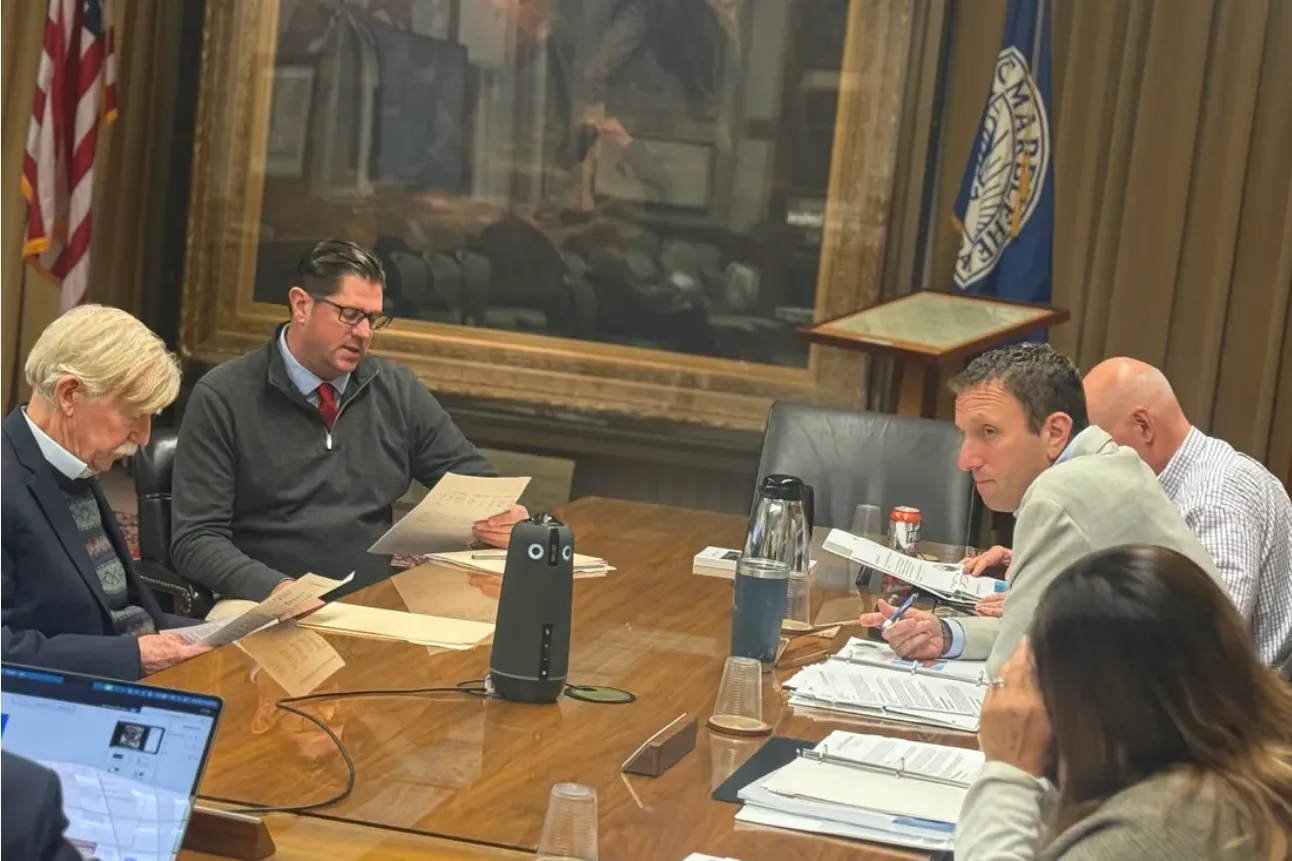Table of Contents
Marblehead has secured technical assistance funding to hire a second consultant and develop a new multifamily housing zoning plan after the state formally rejected the town’s request for an exemption from the MBTA Communities Act.
Select Board Chair Dan Fox confirmed the town has been working with the Executive Office of Housing and Livable Communities to obtain assistance for fresh compliance efforts following voters’ July 8 referendum that repealed previous zoning measures by a margin of 3,642 to 3,297.
“At this point, we have been in touch with the EOHLC to get funding to bring in a second consultant,” Fox said in a recent interview. “They’re going to give us assistance to get a plan together, which is what they did the first round.”
The previous compliance plan — developed with technical assistance from the state and with the firm Bohler — faced strong opposition, especially over Pleasant Street, one of three proposed multifamily districts: 29.8 acres at Tioga Way, 20.6 acres along Pleasant Street and 8 acres off Broughton Road, together satisfying the state’s 27-acre mandate.
Fox indicated it remains too early to determine specific details about the new zoning proposal, including whether Pleasant Street would remain in the plan. “It’s too premature to talk about exactly where that ends,” he said. “We get consultants and we need feedback.”
Fox acknowledged the Planning Board’s work was “well thought out” and included “real constraints on building that would maintain the character of the town, especially in the Pleasant Street area.”
“So clearly the town wasn’t happy with that, so we were unable to move forward with it,” Fox said. “So I think we owe it to the town to go back and and at least explore what other options exist.”
The new planning effort comes after Secretary of Housing and Livable Communities Edward Augustus informed Fox in a Sept. 11 letter that “there are no exceptions or exemptions from the MBTA Communities Law, and EOHLC does not offer exceptions or exemptions.”
Augustus’s letter rejected the Select Board‘s July 15 appeal to Gov. Maura Healey seeking relief from the state’s multifamily zoning mandate. Despite the denial, Augustus emphasized the state’s willingness to assist compliance efforts.
“We remain willing to work with you to ensure that Marblehead can achieve compliance,” Augustus wrote, directing officials to contact MBTA Communities Compliance Coordinator Nathan Carlucci for assistance.
Fox said the town plans to hire a new consultant to “get a fresh set of eyes” on the zoning challenge and conduct “real conversations with people throughout town” to identify concrete objections to previous proposals and develop a more palatable approach.
Funding rejections mount
Fox said the renewed effort comes as Marblehead faces mounting financial consequences and a January 2026 legal deadline. Attorney General Andrea Campbell’s July advisory confirmed the town will lose access to more than $4.6 million in state grants and warned that enforcement lawsuits will begin in January for communities that fail to achieve compliance.
Fox revealed Marblehead was recently rejected for a $735,000 seawall study grant, adding to funding losses stemming from noncompliance.
“We just got rejected for that,” Fox said. “We continue to apply for grants, but any discretionary grants at this point, we’ve been told that we’re not going to get them.”
The financial impact extends beyond lost grant opportunities. Town Administrator Thatcher Kezer previously warned the community would need to forgo an $11.6 million federal port infrastructure development program grant because Marblehead would need to provide a $1.1 million local match previously covered by state funding.
Winthrop’s different path
Marblehead resident John DiPiano, who co-led the successful July referendum, has questioned whether the town properly pursued its exemption request, pointing to neighboring Winthrop’s more formal approach.
While Marblehead sent letters directly to state officials, Winthrop filed a “Petition for Administrative Rulemaking” with the Executive Office of Housing and Livable Communities under state law, then pursued litigation when the agency failed to respond within required timeframes.
Fox acknowledged that “there is no formal application” process for exemptions, explaining that officials “wrote to the governor” and “wrote to the head of the EO HLC, Secretary Augustus, who oversees it, and asked them for one and outlines our rationale for asking for one.”
However, Winthrop’s petition demonstrates alternative procedural pathways were available, though some point out the different timing and circumstances between the communities may have affected potential outcomes.
dth="800" height="600" allow="autoplay">Fox said from legal advice the town has received, “the court has already spoken twice, and that there is no, there is no legal avenue that we see at this point.”
The town’s July letter to state officials argued the situation illustrated “a fundamental governance conflict” between state mandates requiring local legislative action and home rule law that allows voters to reverse those actions through referendum.
“The Commonwealth has mandated municipal compliance through local legislative action, yet our home rule law allows voters to reverse those actions, creating a scenario in which only one answer is acceptable to the state, but two options exist for the public,” the Select Board wrote.
Campbell’s July advisory noted that 79% of covered municipalities — 139 MBTA Communities — have adopted multifamily zoning to comply with the Act. The advisory also warned that noncompliant communities risk liability under federal and state fair housing laws.
“An MBTA Community may violate these laws if, for example, its zoning restrictions have the effect of unfairly limiting housing opportunities for families with children, individuals who receive housing subsidies, people of color, people with disabilities, or other protected groups,” Campbell wrote.
Campbell’s advisory made clear that by January 2026, “the Attorney General is prepared to bring an enforcement suit against any MBTA Community that has failed to both adopt the required zoning and apply for a determination of district compliance from the Executive Office of Housing and Livable Communities.”
The state has positioned the law as “a critical tool to address the dire need for the Commonwealth to add at least 222,000 new homes over the next 10 years,” according to Augustus’s letter.
The Independent reached out for comment from the Executive Office of Housing and Livable Communities and the Marblehead Planning Board.



